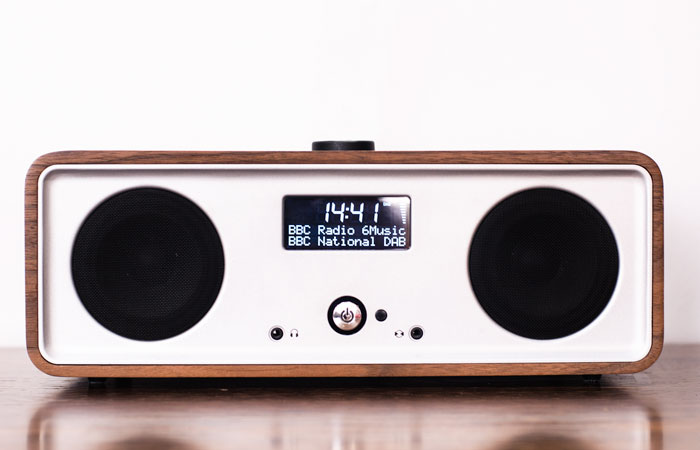
Why There’s A PR in PRoducer
When I decided to move from Oxford to the Big Smoke back in 2010, I left my wonderful job at Jack FM Oxfordshire in search of pastures new. Jack was a fantastic learning curve for me; every day involved a variety of hats to wear and plates to spin – including news reading, presenting, reporting and producing. When I told people that I’d got a job in London working for ON-Broadcast my colleagues at the radio station were quite tongue in cheek in suggesting that from then on in I was about to start annoying them on the phone. I also was surprised at the number of other PRs who said with a jovial roll of the eye “so you’ve moved over to the Dark Side then?”. How could I possibly know?!? I’d a) never watched Star Wars and I’m not a fan of Sci-Fi Films and b) I’d never done PR before.
I was slightly worried about what I’d let myself in for. The last thing in the world I wanted to do was to be that annoying person on the other end of the line to the person I was pitching to.
After getting to know the ropes it really wasn’t long before I twigged that the roles of journalist, producer, PR and even presenter aren’t actually all that different. To this day I still think of myself as a producer. As I see it, I help producers shape their content on a daily basis, and this is very the frame of mind I’m in during a sell-in.
Everyone’s got a different approach to being a successful PR and, to roll out a cliché, it would be a boring world if all PRs were the same. That said, here are some tips that have helped me stay in the producer frame of mind while pitching:
- For regional stations, be armed with something that makes your pitch “doorstep” local. If you don’t have any regional figures, do your own desk research. Today we secured coverage on BBC Radio Lancashire – even though we didn’t have stats specific to the county. A quick quiz on Google, shed light on a relevant court case in the county which gave the producer the local hook she needed to run the story and book in for some time with our spokesperson.
- Don’t be afraid to suggest other ways that producers can build on their features; often I’ll ask them if they’re considering getting vox pops and will even suggest they search for another local guest if it means the story/research/campaign can be credited on air. If they ask for local case-studies (and you don’t have them) best to not offer the moon on a stick. Let them know you’ll go about sourcing one as best you can but don’t guarantee it. I’m always surprised at how far clients will bend over to source a relevant case-study and come up with the goods.
- Be aware that newsrooms get dozens (if not hundreds) of press releases emailed to them every day. You’d be surprised at how many releases are given a cursory glance and then deleted so always make sure you pick up the phone. Don’t beat around the bush though – get to the crux of what you’re pitching quickly and see if it sounds like something they’re keen on covering.
- Undoubtedly one of the pleasures of being a PR is building relationships, even if you don’t know them all that well – it’s good to do your your due diligence on them, quite often they will have worked at a number of other radio stations (it’s a small world), so you may well have already spoken to them in another incarnation.
- That said, don’t be too over familiar with everyone (asides from with your closest contacts). When I was at Jack we used to get PRs calling us telling us how drunk they’d got at the weekend. When it’s only the first or second time you’ve spoken to them and you can’t put a face to the name, PRs run the danger of being a talking point for the wrong reason. Journalists are super busy and don’t often have the luxury of time to hear you wax lyrical about the weather in your part of the world.
- Always make sure your email has your signature and contact details on it. There’s nothing more frustrating than a producer wanting to call somebody for a story and having to trawl through the email, to sometimes find it’s not even there.
- Avoid cheesy cliché’s where possible “I’ve just called to touch base with you about a campaign I thought you might be interested in” is punishable in our office with a 20 pence fine. Quite obviously I’m a hypocrite though, as I’ve used at least two clichés in writing this blog.
- Media audits. Your strongest contacts in broadcast are there to help you. Use them! If you’ve got a project in the pipeline and you want to know quickly if there could be appetite for it, they’ll often give you their opinion upfront. It even sews the seed in their head for when you contact them about it at a later date.
- If you’re pitching to a news desk and have two spokespeople to offer (one branded, one not branded), casually suggest the branded spokesperson wherever possible. This way, when the audio is clipped and edited to 14 second sound bites your brand is pretty much guaranteed a mention in the spokesperson’s title.
- There’s no getting around it, PR can sometimes be a numbers game. Tenacity will get you far as a PR and phone bashing is a necessity, the joy comes when you get an automatic hunch on who’ll take your content and you’ve got their direct dial. Happy days.
Rosie Tratt, Senior PR Consultant at ON
Published 27th September 2013
Comments are closed.